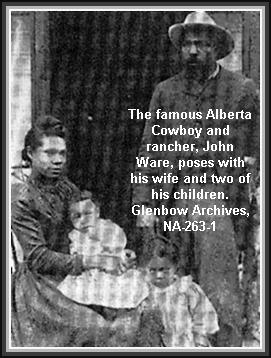
Cowboy Contest Plain and Fancy
Excerpt from "The Canadian Rodeo Book"
By: Claire Eamer and Thirza Jones
 Modern rodeo
grew from two main roots - the informal cowboy contest and the wild west
show. From the former, rodeo took its skills and its strong sense of friendly
competition. From the latter, it took showmanship and a touch of circus
glitter.
Modern rodeo
grew from two main roots - the informal cowboy contest and the wild west
show. From the former, rodeo took its skills and its strong sense of friendly
competition. From the latter, it took showmanship and a touch of circus
glitter.
Cowboy contests were already common entertainment in the Canadian west at the turn of the century. They were often part of the program at sports days and fairs, along with horse racing, polo matches, foot races and fireworks. In the summer of 1892, for example, bronc riding was part of the entertainment a gymkhana held near Calgary. A new event was also on the program that day - a demonstration of steer wrestling by Alberta's famous black cowboy and rancher, John Ware.
Although the American cowboy, Bill Pickett, is generally credited with inventing steer wrestling, the sport was also developed in Canada more or less by accident by John Ware, so the story goes.
In the spring of 1892, Ware was working in a corral beside the North Fork of the Oldman River in Alberta when a longhorn cow decided she's had enough of cowboys. The other men in the corral jumped to safety when the cow charged. John Ware was taken by surprise. To protect himself, he grabbed the cow's horns and held on behind her head while she dragged him across the corral. Then he reached around her muzzle and, with a firm grip in her nostrils, wrestled her head around until she lost her balance and fell to the ground. With the cows nose pointing skyward and all four of her legs off the ground, Ware was able to let go and walk to safety.
What Ware had done once in self-defense, he did again for sport at the 1892 gymkhana and scored a popular success. A year later, the organizers of the Calgary summer fair included a steer roping and tying contest in their program, offering as a prize a one-hundred-dollar hand made saddle. The object was to rope, throw, and tie a steer. John Ware won the contest and the saddle, in a time of fifty-one seconds.
Riding for prizes was the exception in the early days of cowboy contests, not the rule. Stampedes offered competitors fun and glory, but not saddles, buckles, or prize money. Of course, if the cowboys happened to make a little money on the side through some unofficial betting, that was their business.

Return to Home Page